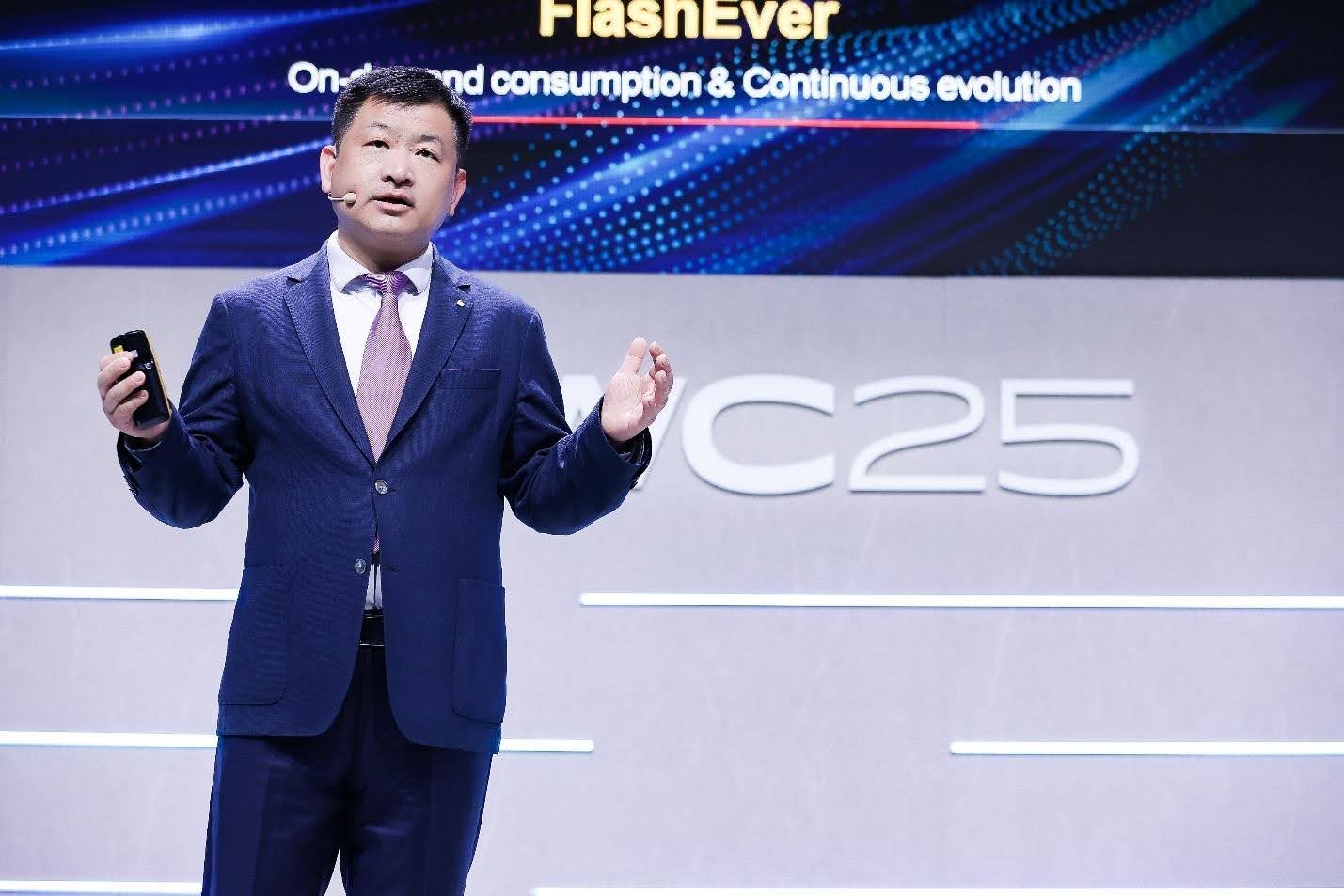Sponsored by Huawei
Why AI commonization is so important for business intelligent transformation and what Huawei’s data storage has to offer

Dr. Peter Zhou, President of Huawei Data Storage Product Line, mentioned the word 'commonization' five times during a media roundtable at MWC 2025 in Barcelona to highlight the fact that, for AI to truly benefit everyone, it needs to be universal. 'The successful story of DeepSeek tells us, AI commonization (universalization) is more important. If AI only belongs to the top in some particular country, then why do we do AI? AI has to be commonized (universalized). This is what DeepSeek has been doing to simplify modeling.'
Huawei is championing the idea of commonization because it believes that this is the best way to make AI sustainable, both in terms of efficiency in training and in reach, for the benefit of different markets globally.
To tackle these challenges, Huawei Data Storage provides the AI-Ready data lake solution, diverse data storage services, and the FlashEver business model, empowering businesses to turn their disordered data into high-quality assets to unlock the value of data.
For mission-critical production workloads, Huawei launches the New-Gen OceanStor Dorado Converged All-Flash Storage and OceanStor A Series High-Performance AI Storage. These solutions boast 100 million–level IOPS, financial-grade reliability, and efficient AI training and inference, supporting tens of billions of daily charging services and robust mobile financial services. Further, the enhanced object storage enables seamless integration of carrier services with cloud-native and AI applications.
For mass data, the Huawei New-Gen OceanStor Pacific All-Flash Scale-Out Storage provides industry-high density and low power consumption. The storage provides exabyte-level scalability to handle cost pressure from emerging services like live streams and XR games.
Another new offering is the New-Gen OceanProtect All-Flash Backup Storage for data protection. The storage offers five times faster data recovery than industry alternatives, accommodating service needs such as emergency drills and AI application development to protect the value of every bit.
Changes in services and technologies are placing greater investment demands on customers. Dr. Peter Zhou shared FlashEver, the business model that protects investments, providing an evolutionary, flexible architecture to enable seamless upgrades for live-network equipment. Also, Huawei storage platform services offer flexible purchase options, SLA assurance, and diverse storage and data services, ensuring high-quality customer experiences.
The emphasis on making your storage AI compliant cannot be underestimated. 'Storage has to be worked tightly with GPU and CPU', Dr. Peter Zhou noted, 'Otherwise, everything relies on computing and too much energy will be utilized'. That's why Huawei DCS AI Solution offers a one-stop AI full-process toolchain and containerized environment, accelerating fine-tuning and large-scale deployment of AI models.
When AI comes, cold data will get smaller and smaller while warm data will get bigger and bigger. That's because data, regardless of whether it is historical or current, is assets and knowledge. Hard disk drive seems not the best answer for warm data and is ill-suited in terms of lifespan, performance and power consumption; they are a compromised solution.
Huawei uses inhouse expertise and components and paired it with its bespoke software stack to deliver award-winning storage solutions such as the New-Gen OceanStor Dorado Converged All-Flash Storage and OceanStor A Series High-Performance AI Storage.
One of the largest Chinese mobile networks in the world, used Huawei OceanStor AI storage and OceanStor Pacific scale-out storage to improve AI cluster utilization by 30% which translated into significant energy, time and ultimately money savings.
More than 26,000 businesses, serving billions of customers worldwide, trust Huawei Data storage solutions and have trusted Huawei with more than 30,000 PB of data. Huawei's dreams of commonization means empowering any business, regardless of their size, to enjoy the transformative power of artificial intelligence for the greater good of society. Customers are from sectors like carrier, finance, government, healthcare, manufacturing, and education. 261 Fortune Global 500 companies, 140 of the top 200 banks, 15 of the top 20 oil and gas firms, 5,000+ manufacturing enterprises, and 1,700 ISPs have chosen to partner with Huawei Data Storage.
Dr. Peter Zhou reaffirmed Huawei's commitment to continuous innovation, specifically building the AI-ready data storage foundation and future-proof storage power to fuel the AI adoption across the carrier industry. In 2025, commercial 5G-Advanced deployment will accelerate, and AI will help carriers reshape business, infrastructure, and O&M. Huawei is actively working with carriers and partners around the world to accelerate the transition towards an intelligent world.
For more details about Huawei’s data storage offerings, visit: https://e.huawei.com/en/products/storage
Sign up to the TechRadar Pro newsletter to get all the top news, opinion, features and guidance your business needs to succeed!

Benedict has been with TechRadar Pro for over two years, and has specialized in writing about cybersecurity, threat intelligence, and B2B security solutions. His coverage explores the critical areas of national security, including state-sponsored threat actors, APT groups, critical infrastructure, and social engineering.
Benedict holds an MA (Distinction) in Security, Intelligence, and Diplomacy from the Centre for Security and Intelligence Studies at the University of Buckingham, providing him with a strong academic foundation for his reporting on geopolitics, threat intelligence, and cyber-warfare.
Prior to his postgraduate studies, Benedict earned a BA in Politics with Journalism, providing him with the skills to translate complex political and security issues into comprehensible copy.